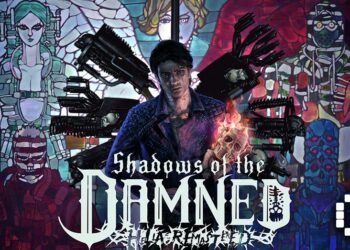It’s time for something completely different on this site, where I’m reviewing the multi-Oscar award winning movie, Drive My Car. Co-written and directed by Ryusuke Hamaguchi, Malaysians can stream the movie exclusively via MUBI, as of 1 April 2022. Much thanks to Mubi Malaysia for giving me the chance to attend the screening!
Adapted from the titular short story from prolific author, Haruki Murakami‘s collection, Men Without Women, the movie actually also incorporates two other stories from that anthology: ‘Scheherezade’ and ‘Kino’. The original Drive My Car is a 50 page story, hardly something you could stretch over 3 hours. With all that said, does the movie actually “deserve” those awards it’s scooped up and justifies its run time? Read on and find out.
Here’s the provided synopsis:
Two years after his wife’s death, Yusuke Kafuku (Hidetoshi Nishijima) receives an offer to direct a play at a theater festival in Hiroshima. There, he meets Misaki (Toko Miura), a reserved young woman assigned to be his chauffeur. As they spend time together, Kafuku starts to confront the mystery of his wife that quietly haunts him.
Content warnings for the movie include sex, nudity, abuse, cheating, allusions to mental illness and general graphic descriptions.
PRESENTATION: THE CONCEPT OF SPACE
Drive My Car features the judicious use of “ma”, that “concept of space” that’s often attributed to Japanese made films. There are stretches of screen time where the camera seems to simply linger wistfully, or the characters are left to themselves in companionable silence, mulling over the circumstances that have led them here. I really love how it’s applied here. After all, even for the most average of us, there’s sure to be something that preoccupies our lives, barely giving any time for us to stop and breathe, so the movie affording that space – especially considering the themes it touches – is truly appreciated.

“Ordinary” is another way I’d describe this movie, and not in some derogatory way. I mean it in that, despite Yusuke Kafuku being a stage play and director, the stage on which he performs is not the primary focus. There is no overt glitz and glamour. Behind the curtains, the characters are simply “ordinary”; smartly-dressed or even drab, they’d probably be background extras in any other production. I feel like it helps you connect to them at a more personal level, and through them, you can process their slightly extraordinary circumstances “more easily”.
I was taken aback when I heard Malay of all things, as Yusuke’s forte is multilingual productions. Sure, the movie is primarily in Japanese, but it’s these little touches that make strong impressions. When your movie has many scenes in the small confines of a car, the execution of expression and emotion can truly get the spotlight.
STORY: “LIMINAL”
I’ve read quite a number of Murakami’s works before – 1Q84 is one hell of a doorstopper, for one – so I went into this expecting the so-called “Murakamisms”, namely, the sex, the magical realism / surrealism, jazz music and deep introspection. He often writes subjects that society at large may consider taboo, even in the “modern West”, opening the floor for discussion and soul searching.

While I’ve read Murakami’s works, I’ve not seen the other adaptations of them, making Drive My Car my first. Here, his signature style feels more subtle, showing itself in the character interactions and the subject matter. It makes me feel like I’m seeing Hamaguchi’s interpretation of Murakami, rather than a 1:1 literal translation of text to screen.
Yusuke Kafuku isn’t the only character in this movie, of course. We have his wife, Oto (as in “sound”), the chauffeur, Misaki Watari, the cast for the theatrical production Yusuke is directing. “Uncle Vanya” by Anton Chekhov is the running thread here, with the characters both within the play and the actors playing them, grappling with their own troubles. Even if they don’t necessarily have the most stakes at hand, they still have to contend with performing with people they’re not guaranteed to understand, with the production’s multilingual nature.

Yusuke’s method of rehearsal, besides the way he directs, is quite avant-garde. Oto’s name becomes poignant, as he listens to her recording of Uncle Vanya on a cassette, reciting his lines in the silence that follows. After getting Misaki foisted onto him to shuttle him around in his beloved old car, we can feel how much closer they get when she plays the tape without further question, him looking out for her and giving her more leeway with the vehicle after he’s seen for himself how much he can trust her.
It’s very difficult to describe the “flow” of the story without going into too much details. All I can say that it was quite the heart-wrenching experience in between the lighter moments.
MY THOUGHTS: A PROMISED DAWN?
For me, I thought Drive My Car really impressed on me the power of language. Even if you don’t understand another person’s words, you can still see it in their motions, their expressions.

It’s much easier said than done, for sure, to come to terms with the circumstances that have brought you here. You’re not sure how to put it into words, or maybe even the mere act of emotion fails you. Nonetheless, will you confront them, or will you bury it inside you? Whatever the case, it is the burden of the living to carry on with the choices they have made.
Drive My Car is an experience I will strongly recommend for much food for thought, and a time for reflection.
| PROS | CONS |
|---|---|
| Use of space to give time to reflect on the topics not normally discussed | Style and subject matter not necessarily to everyone's taste |
| Showcasing power of art |

















![[gamescom asia 2024] EXCLUSIVE: Oil King’s Rise from EVO Champion to a Fighting Game Icon!](https://cdn.gamerbraves.com/2024/11/Oil-King-Interview-SF6_FI-360x180.jpg)
![[gamescom asia 2024] EXCLUSIVE: GamerBee Shares His Professional Journey – Over 10 Years in Street Fighter](https://cdn.gamerbraves.com/2024/11/GamerBee-Interview-SF6_FI-360x180.jpg)








